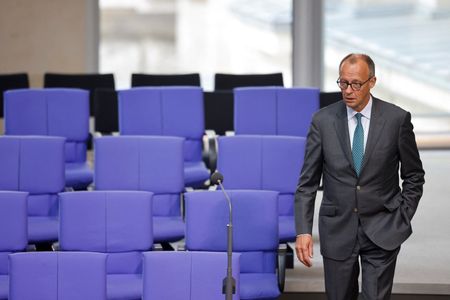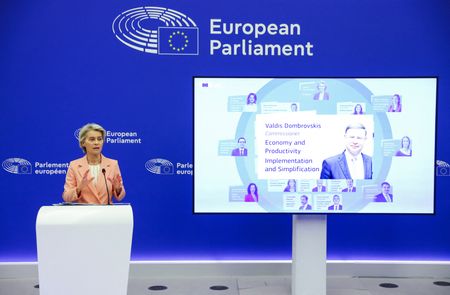By Sergio Goncalves
LISBON (Reuters) – Portugal’s Prime Minister Antonio Costa was sworn in for a third term on Wednesday, promising to maintain the pace of economic growth with the use of EU funds and further slash the budget deficit despite the challenges created by the war in Ukraine.
Costa’s centre-left Socialists won an outright parliamentary majority in a snap election on Jan. 30, after heading a minority government for more than six years.
The Portuguese prime minister can now focus on making use of the 52 billion euros of European Union funds at his government’s disposal until 2027, including 16.6 billion euros from the pandemic recovery package. Costa called the situation “a unique opportunity” while acknowledging that Russia’s invasion of Ukraine had complicated the outlook.
“This war adds a huge factor of uncertainty … but we have not given up on the objectives of growth we approved and of pursuing the path of budget balance and the sustained reduction of the public debt,” Costa said in his inauguration speech in Lisbon.
The government has forecast 5% economic growth this year, in line with the 4.9% registered in 2021, when the economy bounced back from an 8.4% pandemic-induced contraction a year earlier.
Portugal’s budget deficit is expected to narrow to 1.9% of gross domestic product this year from 2.8% in 2021 and then gradually drop to zero in four years.
Still, with the war in Ukraine further clouding the country’s external demand and raising energy prices, Costa’s government acknowledges that growth this year could slow to 3.8%.
“The next few years won’t be as easy as Costa might have thought a few months ago,” said Paulo Rosa, senior economist at Banco Carregosa, pointing to a likely further rise in energy costs and inflation as well as euro zone interest rates.
“In this context, if growth is anemic, perhaps less than 3%, it will be harder to consolidate public accounts” in the face of the country’s huge public debt – 127.4% of GDP in 2021, Rosa said.
(Reporting by Sergio Goncalves; Editing by Paul Simao)











